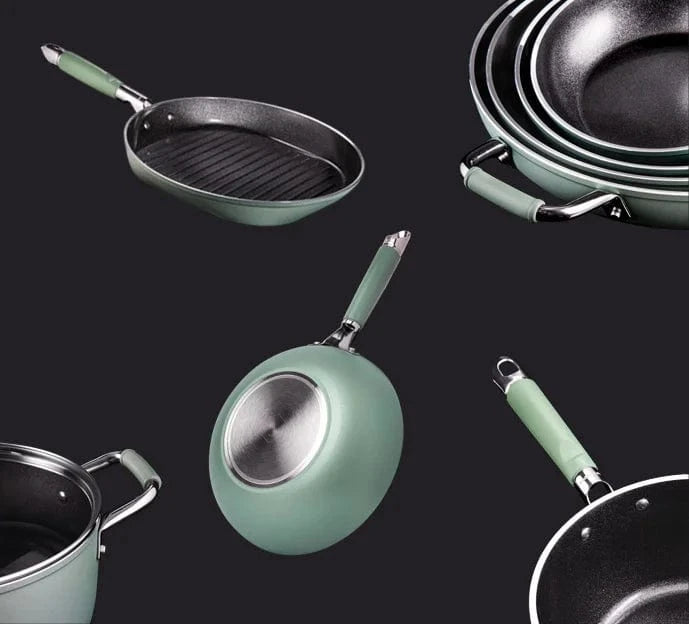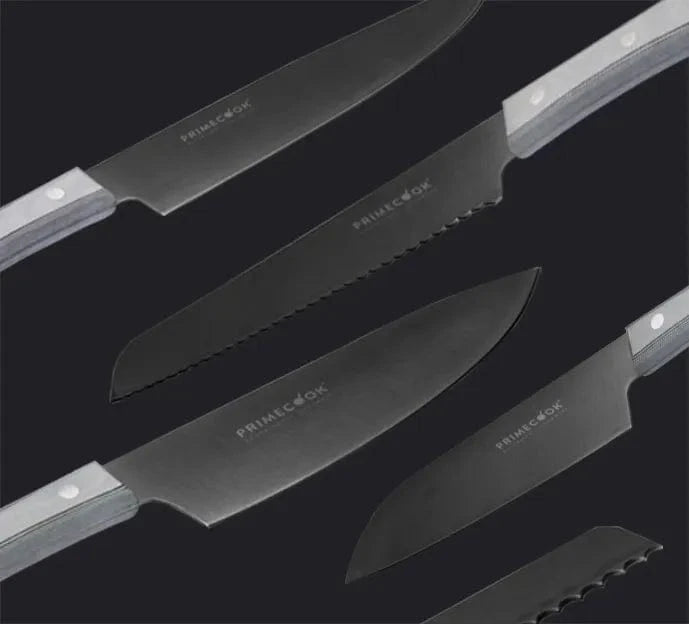
Kitchen knives: 7 mistakes you shouldn't make
You've been eyeing them up for a long time, and finally, you can hold them in your hands: your magnificent kitchen knives!
A real must-have for any self-respecting home or professional kitchen, good knives are essential for preparing tasty dishes and bringing out the best in your ingredients.
At the same time, they are precious objects: high-quality kitchen knives can cost dozens of euros depending on their construction characteristics, the quality of materials, robustness, and performance in use. But, as they say, "Quality will stay long after you forget about the price."(Gucci slogan).
So let's take a look at 7 mistakes to avoid in order to ensure that your kitchen knives don't suffer irreparable damage. Ready? Go!

Using kitchen knives: 7 mistakes to avoid at all costs
1) Common kitchen knife mistakes: washing knives in the dishwasher
Although they are dishwasher safe as long as they are properly placed inside the machine and neutral detergents are used, it is advisable to always wash knives by hand.
This is especially true for high-quality, well-sharpened knives: high-temperature water, "natural" drying, and the wrong detergent are an explosive mix that could spell the end of your beautiful knife!
2) Not drying them immediately after washing
High-end knives, especially artisanal knives, should therefore be strictly hand-washed with a little warm water and, if necessary, a non-abrasive sponge with a drop of neutral detergent.
And here is the second most common mistake: letting the knives dry at room temperature! Nothing could be worse: in order to maintain an excellent sharpness and avoid undesirable oxidation of the steel, the knife should be dried immediately after washing using a clean cloth.
3) DIY sharpening
One botched sharpening process is enough to send your knife straight to the kitchenware afterlife. So be careful: the correct sharpening of a knife requires the use of specific tools and a very precise angling technique dictated by knowledge of materials and experience. The use of coolants may also be required.
Especially in the case of artisanal kitchen knives of a certain cost, think about it: isn't it better to turn to a sharpening professional?

4) Cutting frozen foods
Cutting frozen foods can permanently compromise the quality of the blade. The same goes for cutting hard surfaces such as stone, glass, and metal.
5) Blade in contact with corrosive or abrasive substances
In addition to banning the use of abrasive sponges, which can scratch the blade and ruin the sharpness, it is important to ensure that the knife never comes into contact with corrosive substances. Among these, we can mention, first of all, sodium chloride (the main constituent of common cooking salt), but also organic liquids that, if left to lie on the knife for many hours, can ruin it permanently.
6) Using the wrong knife for the wrong food
The fact that you can find tomato knives, roast knives, bread knives, etc., on the market is no coincidence.
Each knife is in fact designed for specific purposes: the shape and length of the blade, the size of the handle, and the bevel make the knife ideal for certain types of ingredients. There are also professional multipurpose kitchen knives, suitable for most preparations: it's up to you to figure out over time how to organize yourself and learn how to cut correctly and safely, using the perfect knife for the job, of course!
7) Leaving the knives unattended
Do you have children, elderly people or vulnerable people at home? Then another mistake to be carefully avoided is that of leaving knives lying around unattended!
After washing and drying them, always remember to put them back in the knife block or in the cutlery drawer: everyone's safety is at stake!

Did you enjoy our tutorial on what not to do with kitchen knives? Can you think of any other tips? Share them with our community on Facebook and Instagram!




